For the next early part of September, Canadians will start to settle into their desks for another year of education. That means one thing, right? Homework: something, I would bet Grandpa Tait’s farmstead, isn’t popular—how can it be? It takes away time from our day. It’s in that tone, I submit the following mini-thesis. There are no bad ideas, I’ve been told. Because … ideas bring people together to form groups, which grow into movements, and those movements—if communicated properly, mix a need and the opportunities for some of our fellow citizens to be the best they can possibly be. For some, that might be several things many people take for granted.
So, let’s assign—we’re getting serious when we use the word assign—teachers with some homework of their own, with one important condition. They give it back to students. It could involve all the core subjects: math, English, history, social studies, science, and biology—and I think if we work creatively—we can fit a little physical education in there. The benefactor of this plan is the David Foster Foundation.
Let’s dive in to explain further.
First, let’s open the history file. David Foster’s mother called him in the mid-1980s to tell him a child needing an organ transplant was in the hospital in the Los Angeles area, where David was living. David went to see her. The one thing the little girl wanted was to see her sister back in David’s hometown of Victoria, BC. David, being David, flew the sister to Los Angeles for a memorable reunion. Seeing the pure joy in the sisters seeing each other inspired David to start the foundation.
Math folder, please. And we are going to turn this around to make a point. A very important point. Seventy-five per cent of the Canadian population have not signed their organ donor card. If we do the math that’s 29 million. Now consider this: 351,479 babies are welcomed in Canada every year. I don’t think a calculator nor a slide rule, is required to figure out the end conclusion.
English, next please. Acclaimed television actor, writer and director Alan Alda, who made magic on the iconic TV series MASH, once told an interviewer if a writer can evoke laughter and tears in the same moment, they are doing something right. It is, indeed, a skill. It starts with the ask … the ask for folks to sign an organ donor card. But when there’s an emotional attachment the word selection needs to be exclusive. Small tykes undergoing any type of challenge tug at one’s heartstrings. Yet, the families of the kids would not appreciate it if their kids were exploited and are seen as kids of pity. That would not be noble. The key, perhaps, is to use a scientific explanation, a great way to portray the situation. Then, carefully outline the potential the child has when—not if, you understand—has an organ transplant. But. Not too enthusiastic: the message cannot be … flipid.
Next: social studies, with a few chapters of sociology — and a page of math. A healthy population means a healthy economy. And with an economy that thrives, rather than trying to survive, many of a community’s social issues aren’t so harsh.
OK?
What do we do with this?
I have always said if you aren’t going to dream big, don’t even put your head on the pillow. So … what if we had teachers go to their bosses, principals, to hopefully garner their support — and to pom-pom it to the head of the school board? And wouldn’t it be cool if a school board decided to design a—hang on to your hat for the keyword — curriculum for such a course to be taught to the people who brought the idea to them? Their students.
If we have any hope of massaging attitudes towards any type of social issue, we have to educate our youth.
We can gently provide them with the information and show what potential positive change can bring. Because we need as many healthy students in classrooms as we can … not just learning the core subject, but how to care for future generations.
Sounds like a school project to me. Any takers?



